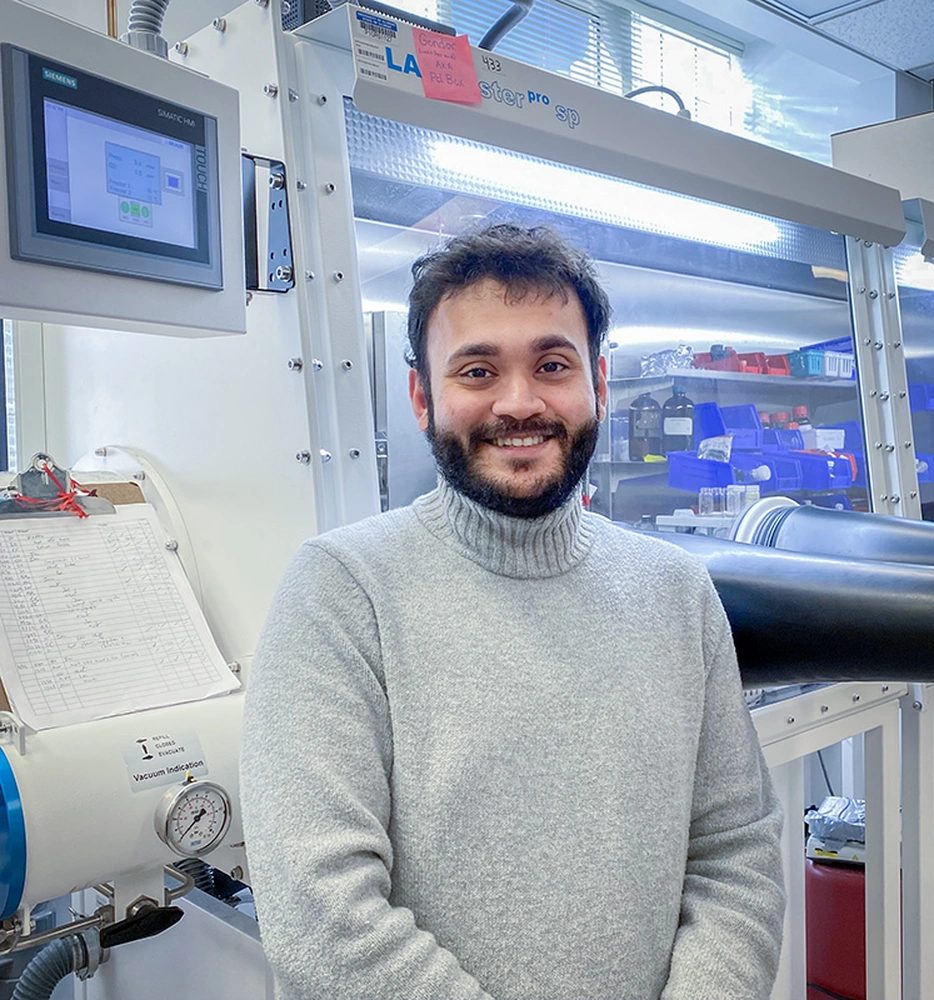
Growing up in Kolkata, India, Sagnik Chakrabarti had a constant curiosity about how nature works and a fascination with the development of quantum mechanics.
Those curiosities evolved into a deep interest in chemistry after reading about the complicated science and politics of the Haber-Bosch process.
“Around this time, I was fortunate to have been taught by a professor during my undergrad who knew exactly how to connect quantum mechanics to inorganic chemistry. In about a year, I was convinced that being able to make molecules with metals in them was what I wanted to do,” said Chakrabarti, who attended Presidency University, Kolkata (BSc) and the Indian Institute of Technology Kanpur (MSc).
Now as a fourth year PhD student in Chemistry at Illinois, Chakrabarti is doing cutting-edge research that involves molecules and metals.
His work in the lab of professor Liviu Mirica involves understanding the role of paramagnetic metal centers, specifically nickel in various aspects of bond-breaking and bond-making chemistry.
“Paramagnetic metal centers are highly reactive as they contain unpaired electrons. We develop ways to tame this reactivity in order to understand them and eventually, use them to develop chemistry that is relevant to energy, pharmaceutical, and fine chemical industries,” Chakrabarti said.
In a recent Nature Communications article, Mirica and Chakrabarti explained how they designed a synthetic molecule that mimics a hydrogen gas-producing chemical reaction performed by the ancient biological enzyme, nickel-iron hydrogenase. This could play a key role in producing hydrogen for a renewables-based energy economy, because the ancient enzyme produces hydrogen using earth-abundant metals in its core, like nickel and iron, rather than the rare expensive platinum currently used as a catalyst in the industrial hydrogen production process.
Working on scientific solutions like this recent project is why Chakrabarti decided to pursue his PhD and aspires to continue research in academia or a national lab after he completes his doctorate.
“I think it's the only opportunity you get to try out ideas that you have with your own hands. Being able to answer scientific questions that interest me and the wider community, convinced me that a PhD was the way to go,” said Chakrabarti, who chose Illinois for multiple reasons. “The Department of Chemistry (at Illinois) had a bunch of people whose research I loved. We also have almost every instrument you can think of.”
And although he grew up in Kolkata, which he describes as always busy, crowded, and never boring, Chakrabarti said he was attracted to the atmosphere in Urbana-Champaign.
“I liked the idea of spending some time in a quiet, smaller town,” said Chakrabarti, who was convinced he wanted to do his graduate work in the Mirica Group after his first conversation with Mirica.
“I love the freedom that our group offers in terms of pursuing research problems broadly defined by a scientific theme. The camaraderie in the Mirica group is great - we work hard, and we play hard,” he said.
When he has time to play, Chakrabarti enjoys some of his favorite downtown Urbana spots, like 25 O'Clock Brewing Company, Cloud Mountain Kombucha brewery, and Baldarotta's Porketta & Sicilian Sausage sandwich shop, plus watching and analyzing soccer, especially in the Premier League.
“In an alternate world, I would be managing a soccer team in the third division of English football! For those who are unfamiliar, I highly recommend watching ‘Ted Lasso’ on Apple TV,” he said.
— Tracy Crane, Department of Chemistry